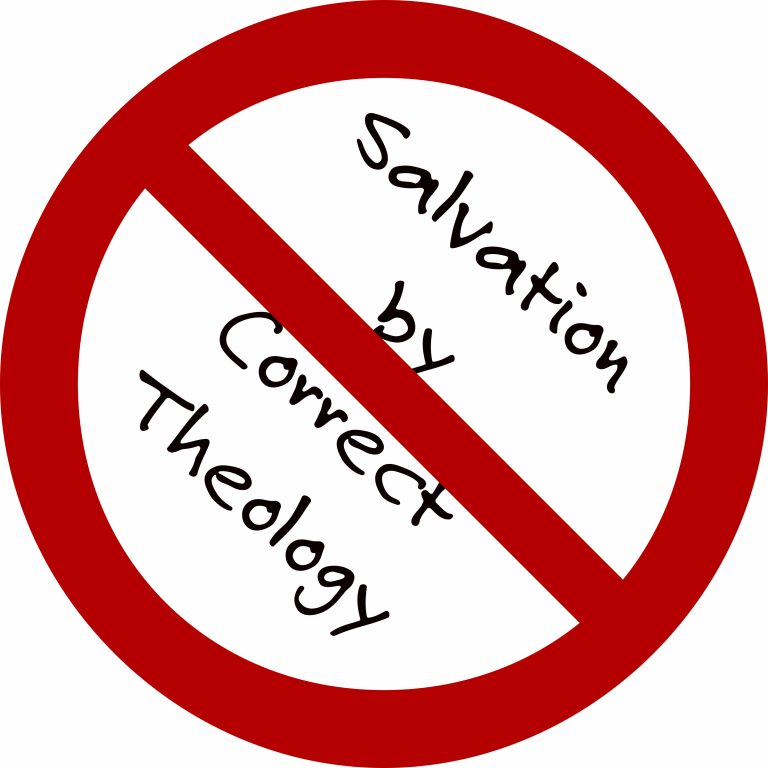Keeping up with the Justification Debate
I am doing some reading before I respond to a couple of posts, but I did want to link to some interesting stuff.
Both Mark Olson (Pseudo-polymath) and Anne (Heart, Mind, Soul, and Strength) have written posts discussing justification from a perspective other than the judicial/penal substitution approach. Their posts simply confirm to me that there are many, many valid ways to talk about the sacrifice that Jesus made on our behalf, and that penal substitution is just one of those. Unlike some, I do not wish to discard it, but I also will not make it the one and only metaphor.
Adrian Warnock has posted twice, first Legalism, Racism, and the First Century Jew, to which I will respond later at some length. I find much to object to in that short post, but I’m also working through Piper’s comments in their context before I blow off steam.
The second one is 2 Corinthians 5 and Romans 5 – Two Critical Passages on Justification in which he links an article that I had linked earlier, and says:
If you are interested in seeing an example of this, there is an article by Wright on 2 Corinthians 5:21 [PDF-HN] that I must say I found wholly unconvincing.
I see a great deal of “finding unconvincing” but I see remarkably little actual exegetical argument. The primary form of argument appears to be theological. If the question is whether the new perspectives on Paul differ from prior theological statements, then we can cheerfully answer yes, and go on. But for me the question is whether the new perspective gets us closer to correctly understanding Paul and what he has to say.
One of the keys here is to understand the paradigm shift that several interpreters have taken. If you do not accept that paradigm shift, you are likely not to accept Wright’s specific exegesis of 2 Corinthians 5:21. That is not surprising, since he is dealing with that verse in the context of that new paradigm. (I am not overly fond of “paradigm shift,” as a term, or at least I don’t think I am, but it seems to me that the new perspectives on Paul do justify that term.)
Peter Kirk blogged on this same topic, and brings up a number of points. I have to say that anyone who implies that Augustine was a theological pygmy is likely to get my favorable attention! But more importantly, Peter points to one side issue, and that is the way in which (some?) reformed theology can make God look like he is a bit veracity-challenged, and can’t truly tell whether people are righteous or not.
Meanwhile, the view that I am working towards is a rejection of the Reformed idea that Christians remain sinners in actual fact but are nevertheless, by a legal fiction, counted as righteous in Christ. Instead of this, the picture I have, based on various biblical passages such as Ephesians 4:22-24, is that the Christian consists of two separate persons or personalities: the old self (in some versions old man, but to be understood of course in a gender generic sense) born by natural birth who is a sinner, guilty, condemned to death and destined to die; and the new self born of the Spirit and into Christ, who is righteous, holy, free from condemnation, will not die, and indeed is already living eternal life in Gods kingdom. . . .
Just so. Like Peter, I continue to be in flux on some of these issues. There are boundary lines that I’m fairly certain of, but others I’m studying a great deal, but Peter’s paragraph is one of those that strikes me as promising. When I read it, I feel that he is “with” Paul in a significant way. Perhaps he’ll have to adjust some, as he says, but he’s going the right direction.
I will be blogging a bit more on 2 Corinthians 5 from an exegetical point of view, hopefully in the next few days.

Thanks, Henry. Actually what you call a side issue I was thinking of as the main issue, and implicitly vice versa. But I look forward to exploring further both these issues alongside you.
Well, I think one of the things that can be explored is whether that is a side issue or the central issue. I am very ready to change my mind on that.
If you’re reading up on the atonement, I would highly recommend Violence, Hospitality and the Cross: Reappropriating the Atonement Tradition by Hans Boersma. Hes a historical theologian and asks how we might synthesize all three traditional atonement theories (substitution, Christus Victor and moral influence) with an eye not only to the New Perspective, but also to the many post-modern objections to divine violence. I don’t agree with everything he says, but the book is outstanding.
Thanks for the recommendation. I’ll put that on my reading list.